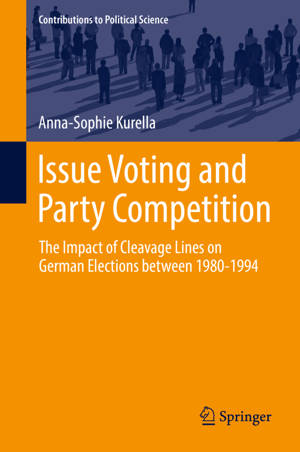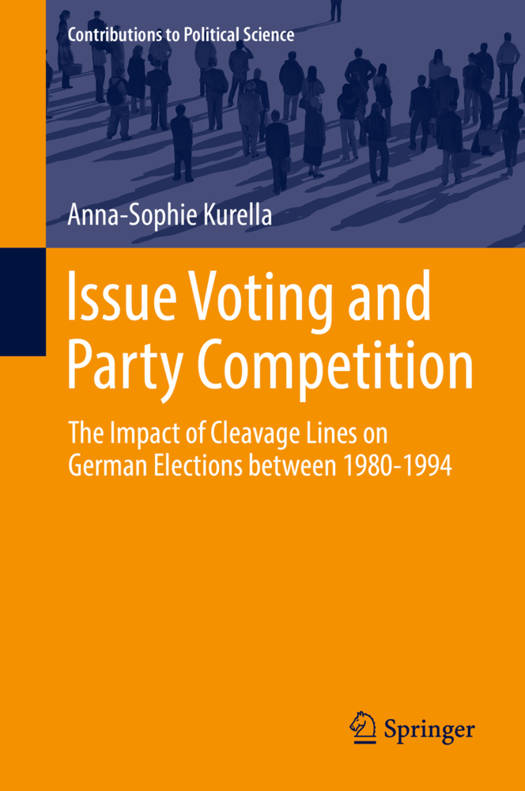
- Afhalen na 1 uur in een winkel met voorraad
- Gratis thuislevering in België vanaf € 30
- Ruim aanbod met 7 miljoen producten
- Afhalen na 1 uur in een winkel met voorraad
- Gratis thuislevering in België vanaf € 30
- Ruim aanbod met 7 miljoen producten
Zoeken
Issue Voting and Party Competition
The Impact of Cleavage Lines on German Elections Between 1980-1994
Anna-Sophie Kurella
€ 52,95
+ 105 punten
Uitvoering
Omschrijving
This book examines how social cleavage lines shape issue voting and party competition. Based on a study of German elections between 1980 and 1994, it analyzes whether cleavage group members put more weight on policies that address their personal self-interest than voters who are not affected by the cleavage line. Furthermore, it analyzes the consequences of cleavage groups' deviating patterns of voting behavior for the formal game of party competition. More concretely, the author asks whether equilibrium positions of parties within the policy space are pulled away from the mean due to the more extreme policy demands of cleavage groups in the electorate.
Specificaties
Betrokkenen
- Auteur(s):
- Uitgeverij:
Inhoud
- Aantal bladzijden:
- 147
- Taal:
- Engels
- Reeks:
Eigenschappen
- Productcode (EAN):
- 9783319533773
- Verschijningsdatum:
- 23/03/2017
- Uitvoering:
- Hardcover
- Formaat:
- Genaaid
- Afmetingen:
- 156 mm x 234 mm
- Gewicht:
- 408 g

Alleen bij Standaard Boekhandel
+ 105 punten op je klantenkaart van Standaard Boekhandel
Beoordelingen
We publiceren alleen reviews die voldoen aan de voorwaarden voor reviews. Bekijk onze voorwaarden voor reviews.











